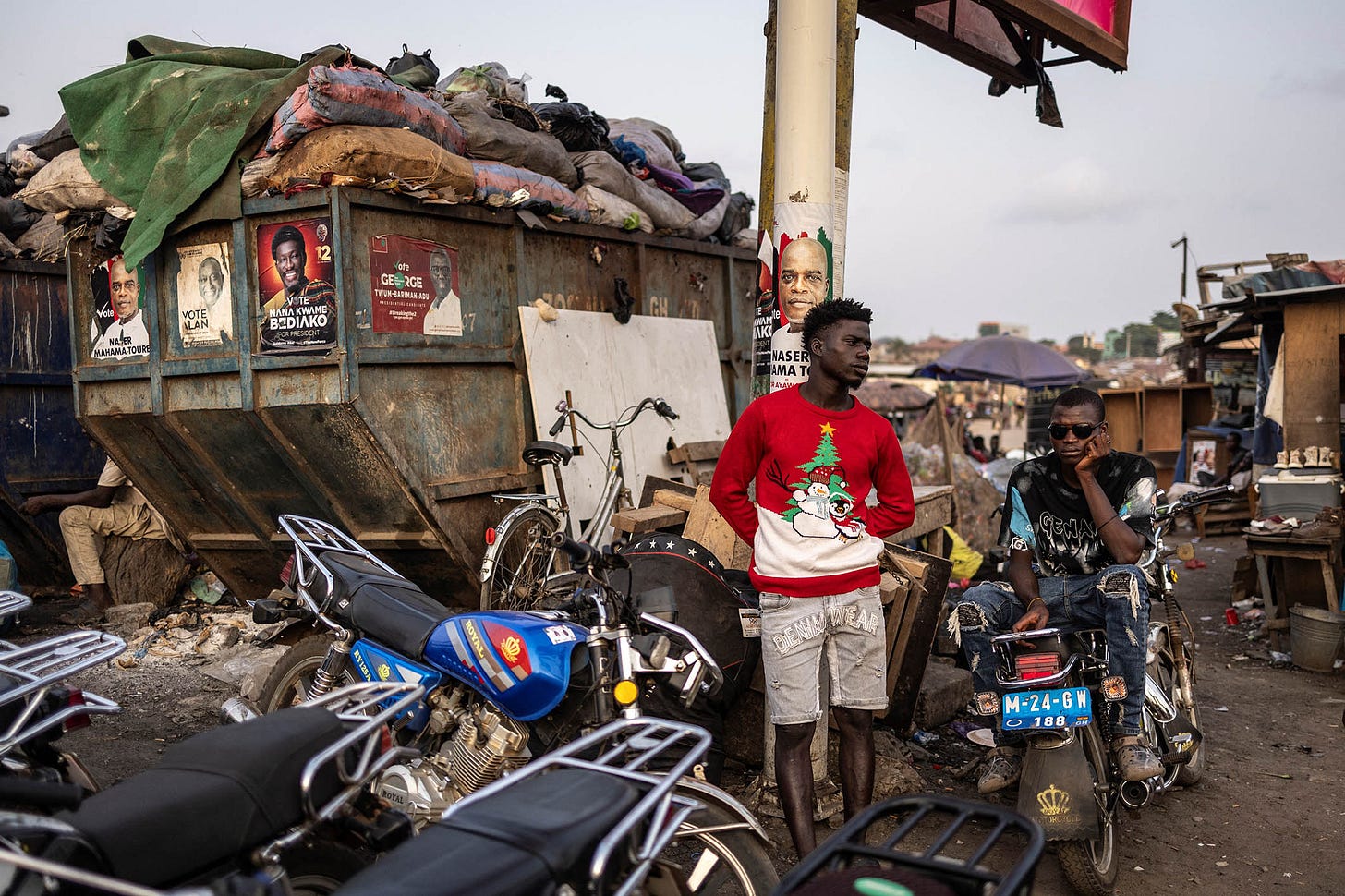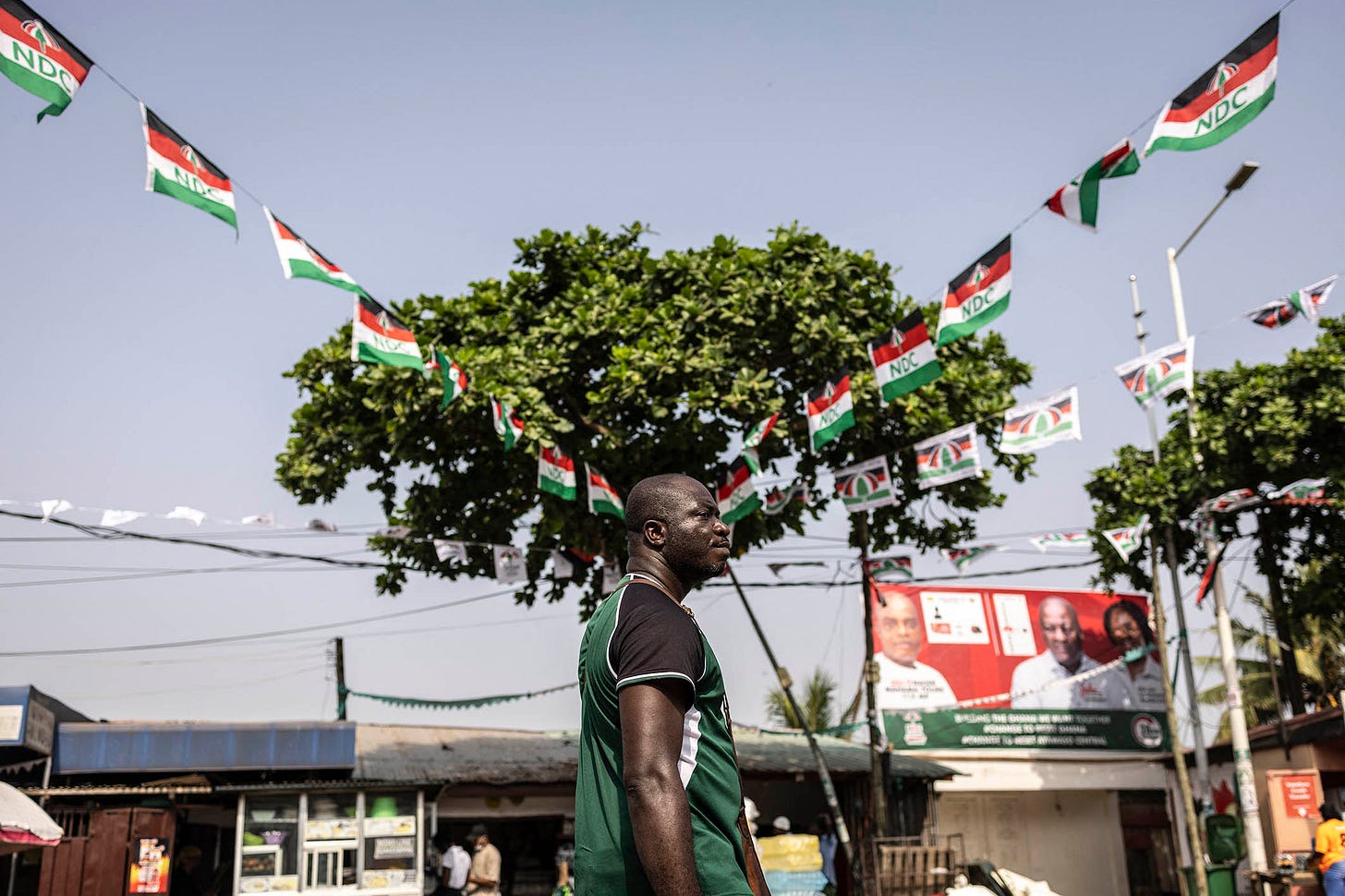It’s the stupid economy
Both leading candidates in this weekend’s election helped to create Ghana’s economic mess.
Francis Kokutse in Accra

The issue of Ghana’s national debt will decide the 7 December presidential election. Much depends on the length of voters’ memories.
Voters preoccupied with current economic hardship will treat the election as a referendum on the current administration, with vice-president Mahamudu Bawumia contesting for the top job. He is the economist who has been at the head of President Nana Akufo-Addo’s economic management team, and nobody wants a repeat of the past few years of economic life in Ghana.
Ghana defaulted on its $30-billion sovereign debt in 2022. Struggling to recover from the disruptions of the Covid pandemic, the coastal country’s economy was hurt further by the Russia-Ukraine war. It disrupted maritime business and pushed up the prices of imported goods, including food.

The default spooked external investors, reducing even the money coming in for private businesses and sending the currency in a spiral. “If the economic fundamentals are weak, the exchange rate will expose you,” Bawumia used to say on the 2016 campaign trail, when he and Akufo-Addo were running for office for the first time. At the time, 4.5 Ghana cedis bought a United States dollar. Bawumia’s words have come to bite him: the cedi is now more than 15 to the dollar.
Bawumia’s main opponent is former president John Mahama, whom AkufoAddo replaced in 2016. His campaign has seized on the economic tailspin of the Akufo-Addo years, blaming it on the incompetence and reckless borrowing by his administration. But Mahama’s own record is not any better.
He was president from 2012 to 2017. During that time, Ghana’s sovereign debt swelled from 49% of GDP to over 70%. Even then, debt was a big enough issue that the Akufo-Addo/Bawumia duo won in part by promising that the country would never again borrow from the World Bank or International Monetary Fund. They walked back those words in 2023, when they turned to the IMF for a $3-billion bailout.
Despite their equally poor record on the economy, Bawumia and Mahama are the top contenders now. Both have promised to fix the economy this time around: the election is likely to hinge on which candidate has sold that promise more convincingly



